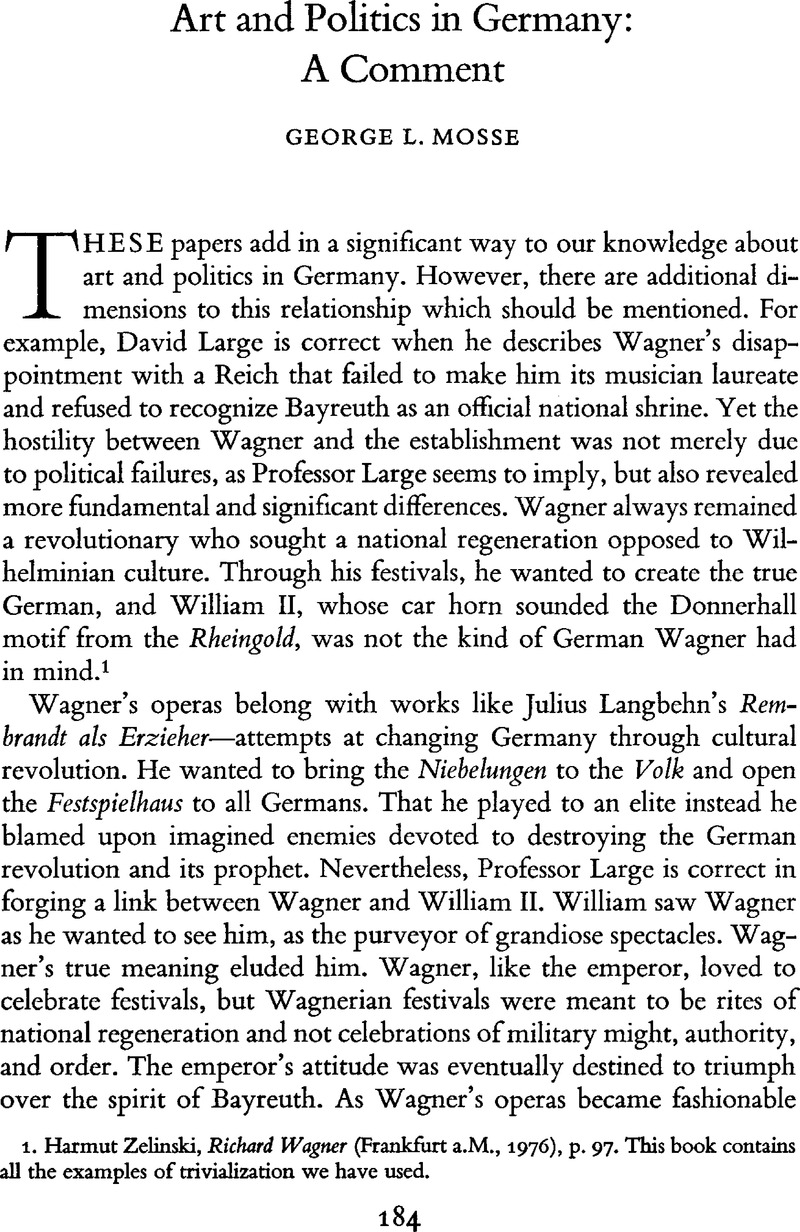No CrossRef data available.
Article contents
Art and Politics in Germany: A Comment
Published online by Cambridge University Press: 16 December 2008
Abstract

- Type
- Symposium: Government, Social Structure, and Cultural Life in Germany
- Information
- Copyright
- Copyright © Conference Group for Central European History of the American Historical Association 1978
References
1. Zelinski, Harmut, Richard Wagner (Frankfurt a.M., 1976), p. 97.Google Scholar This book contains all the examples of trivialization we have used.
2. Hamann, Richard and Hermand, Jost, Impressionismus (Berlin, 1960), pp. 217–18.Google Scholar
3. von Werner, Anton, Erlebnisse und Eindrücke, 1870–1890 (Berlin, 1930), pp. 112–13.Google Scholar
4. Meiners, C., Grundrisse der Geschichte der Menschheit (Lemgo, 1785), p. 43.Google Scholar
5. E.g., Blumenbach, D. Joh., Über die natürlichen Verschiedenheiten im Menschengeschlecht (Leipzig, 1798), pp. 143–44Google Scholar; for a more detailed discussion of this point see Mosse, George L., Towards the Final Solution, a History of European Racism (New York, 1978).Google Scholar
6. See the forthcoming Das Kriegserlebnis, ed. Vondung, Klaus (Göttingen, 1978).Google Scholar
7. Duchet, René, Le Tourisme à travers les âges, sa place dans la vie moderne (Paris, 1949), p. 14.Google Scholar
8. E.g., Mittenzweig, K., “Die Lehren des Hurrakitsches,” Innendekoration 27 (1916): 396–402, 426.Google Scholar
9. Barthes, Roland, Mythologies (Paris, 1957), p. 137.Google Scholar
10. Rearick, Charles, “Festivals in Modern France: The Experience of the Third Republic,” Journal of Contemporary History 12, no. 3 (07 1977): 435–60.CrossRefGoogle Scholar


